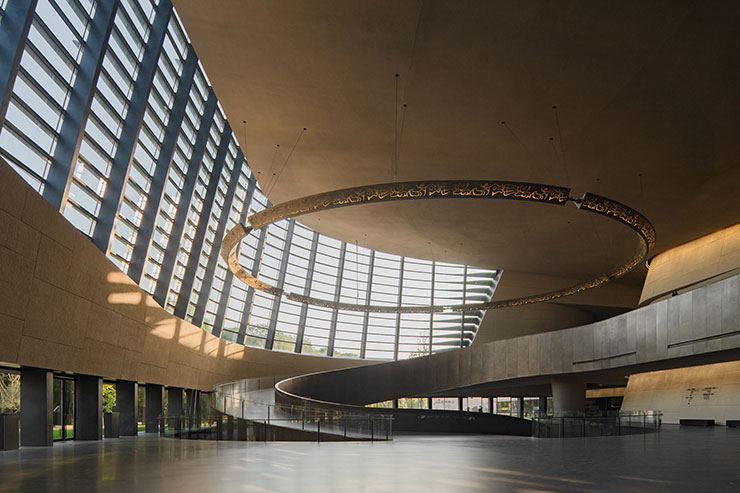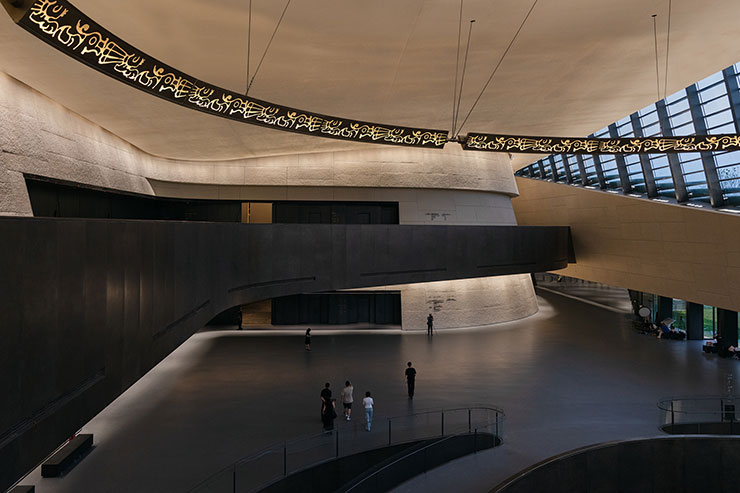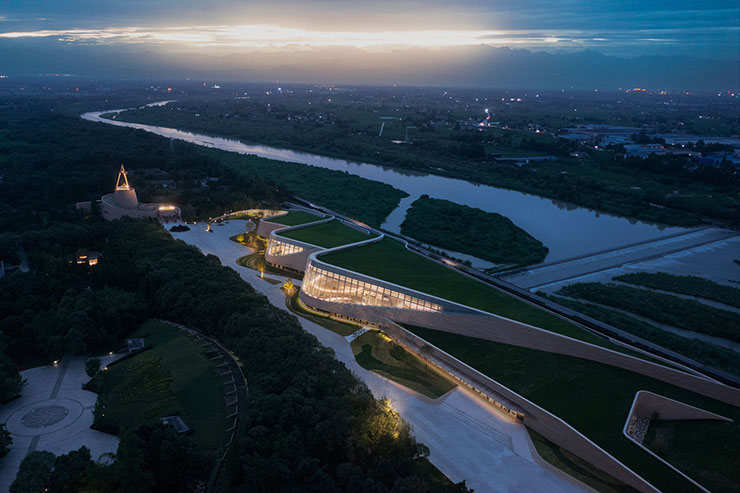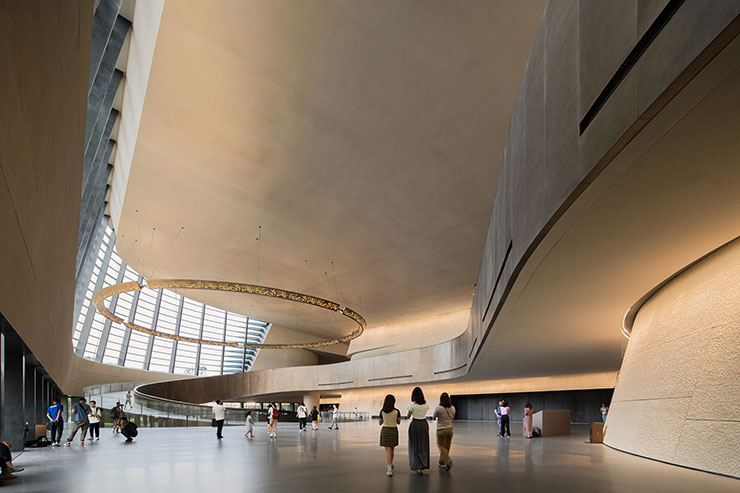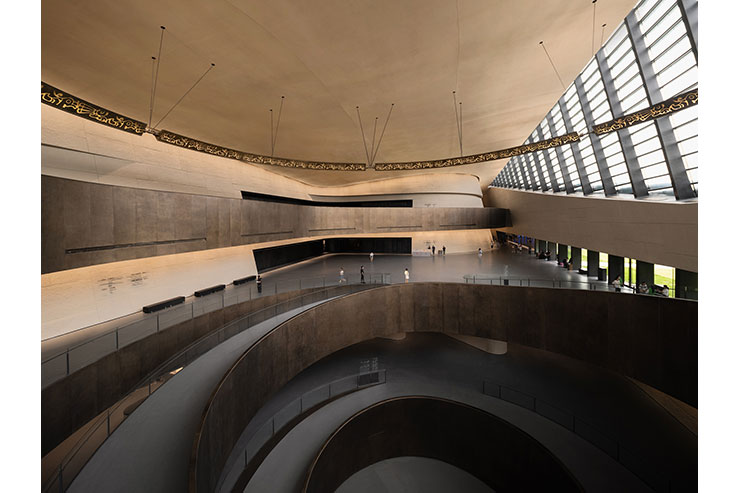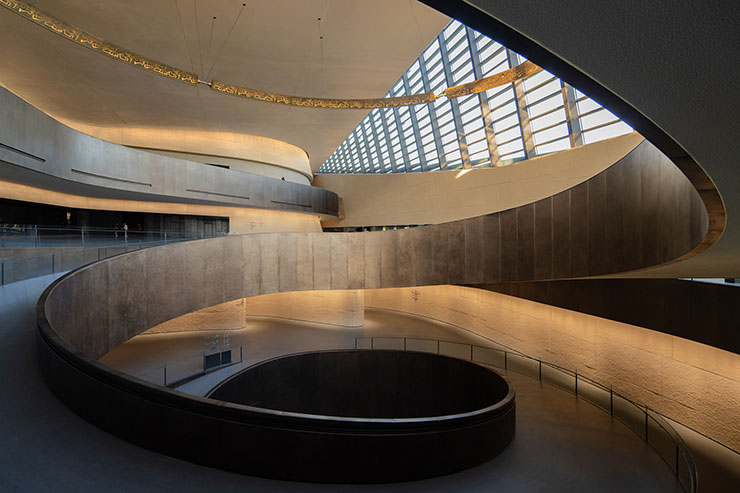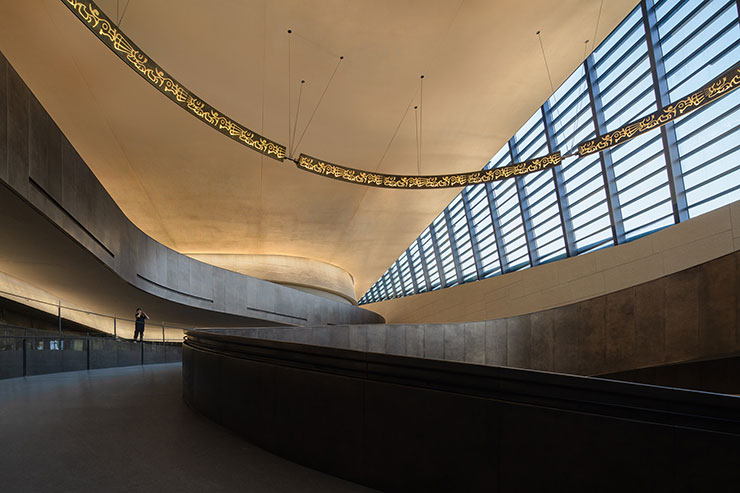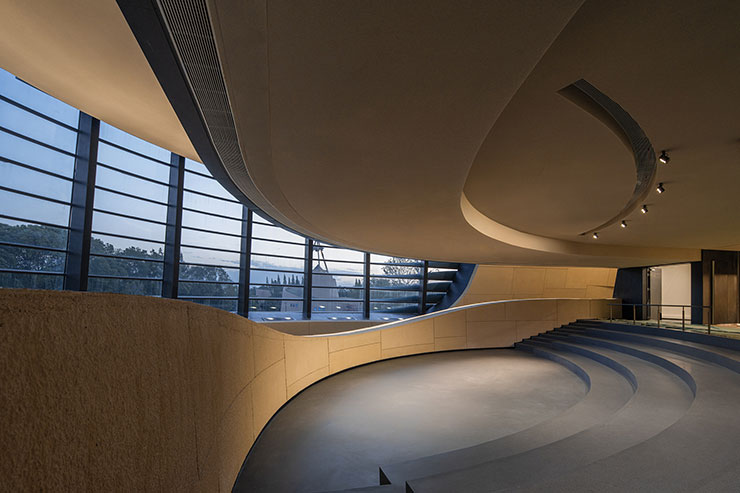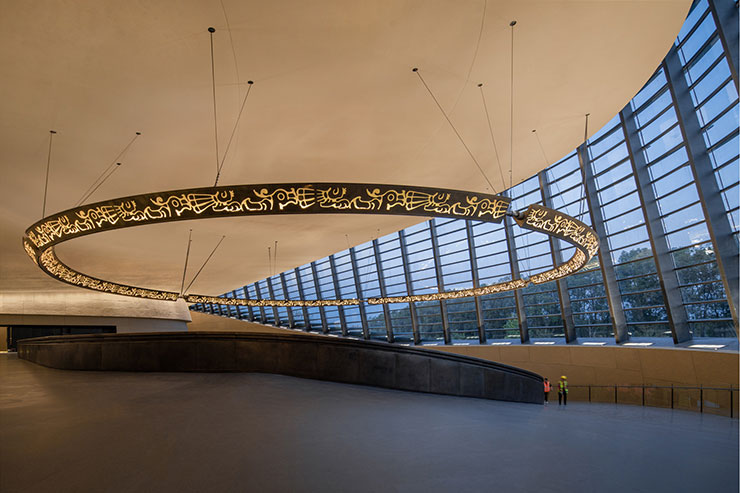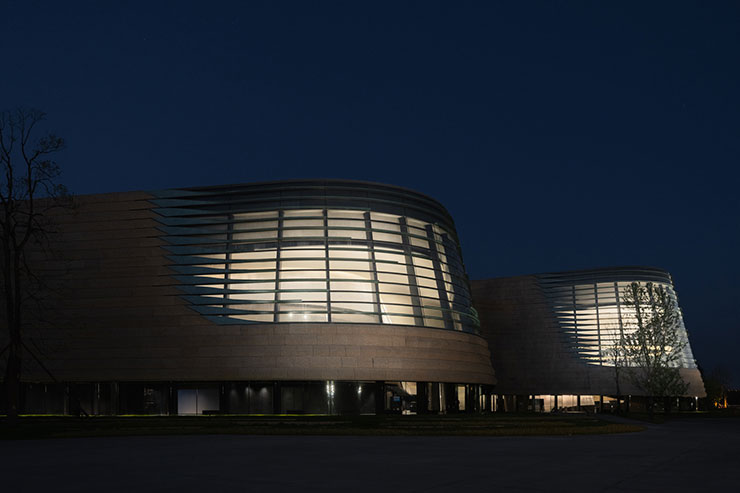- ABOUT
- JUDGING
- ATTEND THE EVENT
- CONTACT
- MORE
- 2024 Entries
- Installations 2024
- Past Winners
- Subscribe
- [d]arc directory
- arc magazine
- darc magazine
Sanxingdui Museum New Hall, China
ProjectSanxingdui Museum New Hall, ChinaLocationGuanghan, Chengdu, Sichuan, ChinaLighting DesignPuri Lighting Design, UKClientGuanghan Sanxingdui Cultural Tourism DevelopmentLighting SuppliersSeaton Bach
At night, although there is no need for visitors, as a lighting design, we still have to address some of the activities of the venue and the need to light up the “eyes”. The architecture of the new building is simple curved lines; it is clean and pure material surfaces; it is a fading building. With this in mind, we decided to use indirect light as a form of expression. That is to say, the façade and roof of the building should be lit, and there should be no light fixtures in the space as far as the human eye can see. Whether people walk in the space or look at the building from outside, they can feel the expression of light on the space, and should not be disturbed by the lamps. In the traditional inherent concept, the lamps are installed on the ceiling, this time we made a bold innovation. Just as the artifacts of Sanxingdui brought people amazement, the new museum building itself, which houses these artifacts, also gave the biggest surprise. We did not see the light, not see the light, the ceiling to keep clean, pure.
The second brightness is the façade of the space, the deepest part of the “eye”. This is a stone with a lot of texture changes and not a lot of reflectivity. From the outdoor point of view, we want to create more mystery, and want to use strong light to attract people to the deepest interior of the “eye”; from the indoor point of view, the façade is also the location of the space with the most varied shapes, and illuminating it can also provide enough reflective light for the space. Here we chose the façade wall washer light, in order to hide the light fixture and achieve the effect of seeing light but not seeing light, we installed the light fixture in the ceiling light channel.
The third brightness level is the ceiling. The light of the ceiling we present in two ways. The first is the uplighting of the façade on the side of the curtain wall. From the outside, this is the “eye” side, so we emphasize it with the uplighting of the curtain wall. The uplighting of the curtain wall is divided into 22 groups of 4 luminaires each, 70 watts at a 36 degree angle and 70 watts at a 60 degree angle.
Fill light in most of the ceiling is achieved by having a ring uplighting spotlight installed at the top of the ring. The light in the center of the ceiling does not need to be very strong. At the same time, the ceiling has a certain inclination. Therefore we chose three lamps with different parameters according to different positions: 20 watt 24 degree angle, 20 watt 50 degree angle and 40 watt 50 degree angle lamps respectively. There are 73 sets in total, which are evenly arranged on the top of the hanging ring, and the 0~10V dimming system can set the scene for them.
This is a space where there are no lamps at all but only light. The lighting of the large span of space is all done by indirect light. The brightness and darkness of the space have dramatic changes, highlighting the mystery of the Sanxingdui. When night falls, the façade wall washer lights and spotlights slowly light up one after another, as if the “eyes” slowly open to see the world. The totem pattern of the hanging ring is clearly lit. The civilization of a thousand years is presented in front of our eyes.
Mounded three site, the “Eye” of Ancient Shu, Brightening the World!
